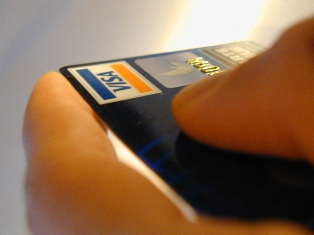As More Consumers Slip Back Into Debt, Tennessee Bankruptcy Offers a Solution
After a few years of cutting costs and trimming budgets, it appears that Tennessee consumers are once again slipping back into debt.

The average Tennessee resident now owes $24,043 in credit cards, personal loans, and auto loans - a $500 increase over last year, according to credit reporting agency Experian. Residents in Middle Tennessee areas including Nashville have a slightly higher average debt load of $24,152.
Higher levels of debt can mean one of two things: Either consumers are feeling more confident in their ability to spend, or they're falling back into the bad habit of spending more than they're earning.
Some financial experts fear it's the latter.
Those who have struggled to stay afloat since the recession arrived may finally be falling behind. With costs rising and wages falling, people who were formerly living paycheck-to-paycheck are falling back on credit cards.
According to The Tennessean, U.S. wages rose just 0.9 percent in 2011, while inflation increased by 3.2 percent. Savings dropped from 5.3 percent in 2010 to 4.4 percent in 2011.
But despite the recent return to debt, the average Tennessee consumer still managed to reduce personal debt by $2,000 between 2007 and 2010. That's compared to just an $800 reduction by consumers nationwide.
A portion of the debt decrease may be due to bankruptcy filings. Tennessee had the country's third-highest personal bankruptcy rate last year, according to the article.
Unlike credit counseling and debt consolidation, bankruptcy is the only debt-fighting tool legally created with the consumer in mind. Filing for bankruptcy in Tennessee has the power to substantially reduce or eliminate debt, stop wage garnishments, and halt harassment from debt collection companies.
Of course, some of the state's lowered debt levels can be attributed to consumers prioritizing their credit card payments over mortgage payments - a practice that can eventually result in foreclose.
Homeowners who qualify for Chapter 13 bankruptcy can kill two birds with one stone. Chapter 13 legally stops foreclosure while setting up a payment plan to help consumers lower debt. After the mandatory 3-5 years, any remaining debt is discharged free and clear.
The bad news is that the economy may continue to get worse before it gets better. The good news is that Tennessee bankruptcy can allow consumers to do something about it.
To speak with a Tennessee bankruptcy attorney call the DebtStoppers Bankruptcy Law Firm at 800-440-7235 today for a free debt analysis. Call 800-440-7235.
More Blog Entries:
Hidden Credit Card Debt Strains Tennessee Marriages: February 6, 2012
Real Estate Data Shows Tennessee Foreclosures on the Rise in Nashville, Memphis Areas: January 23, 2012
Additional Resources:
Nashville Area's Consumer Debt Level Ticks Higher, by Duane Marsteller, The Tennessean

